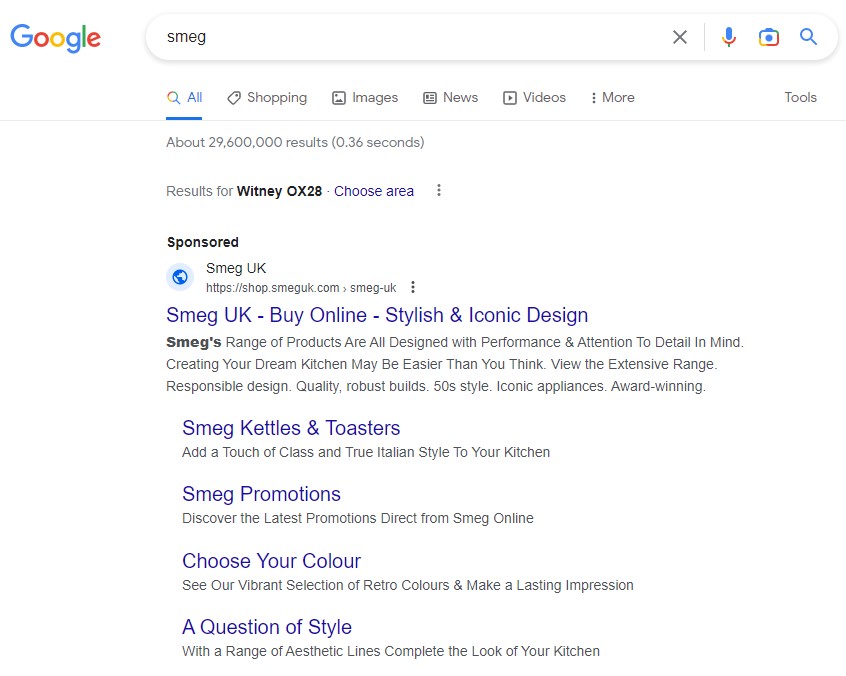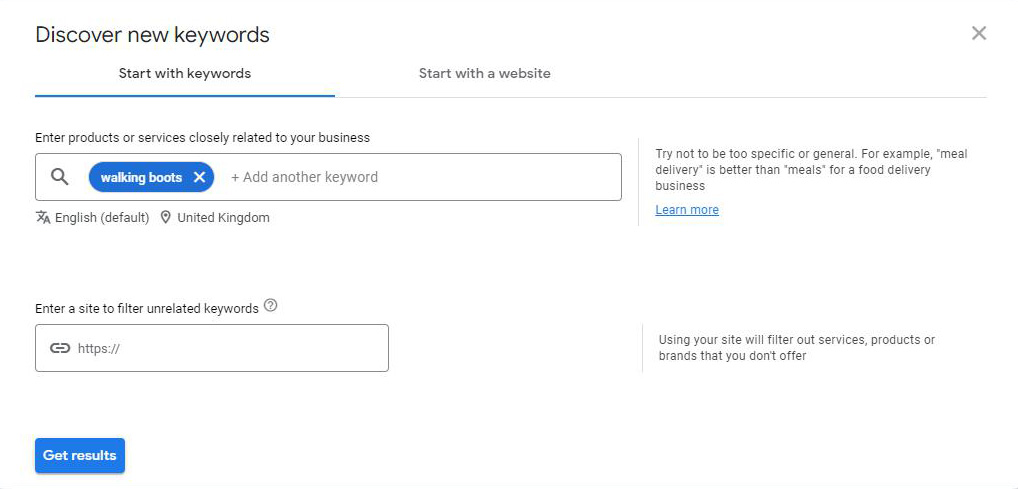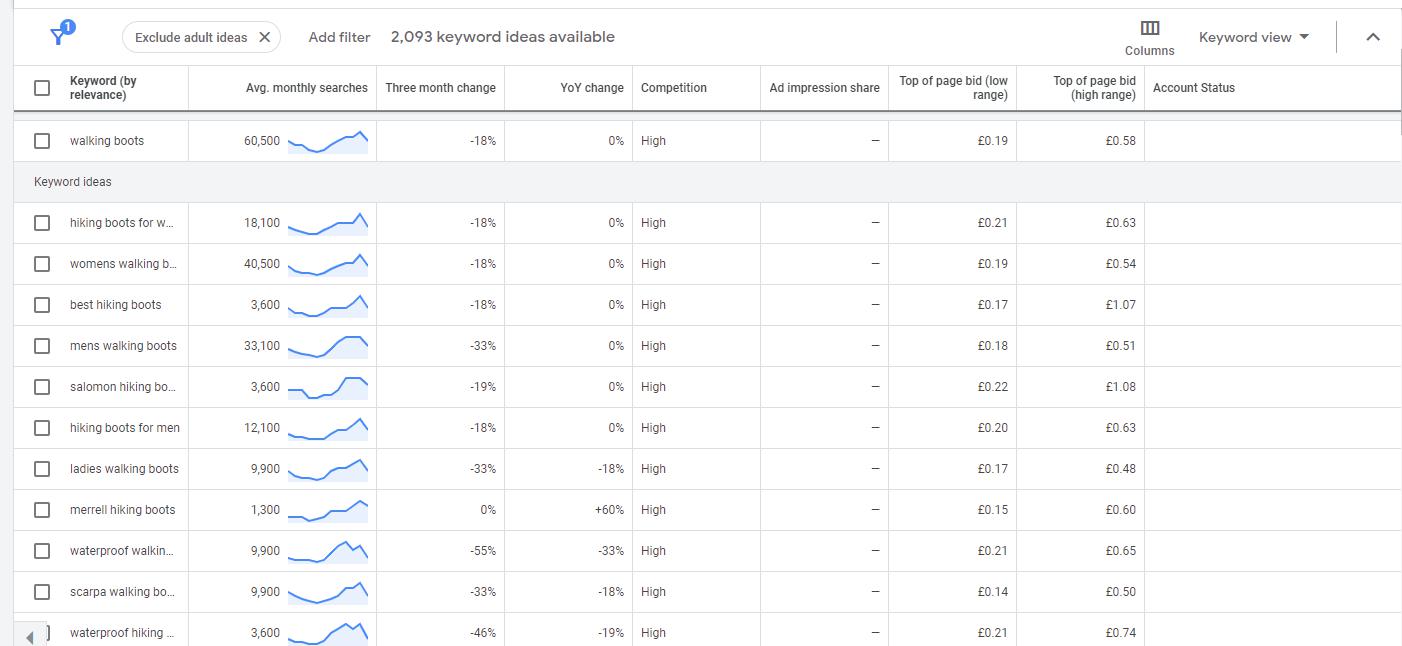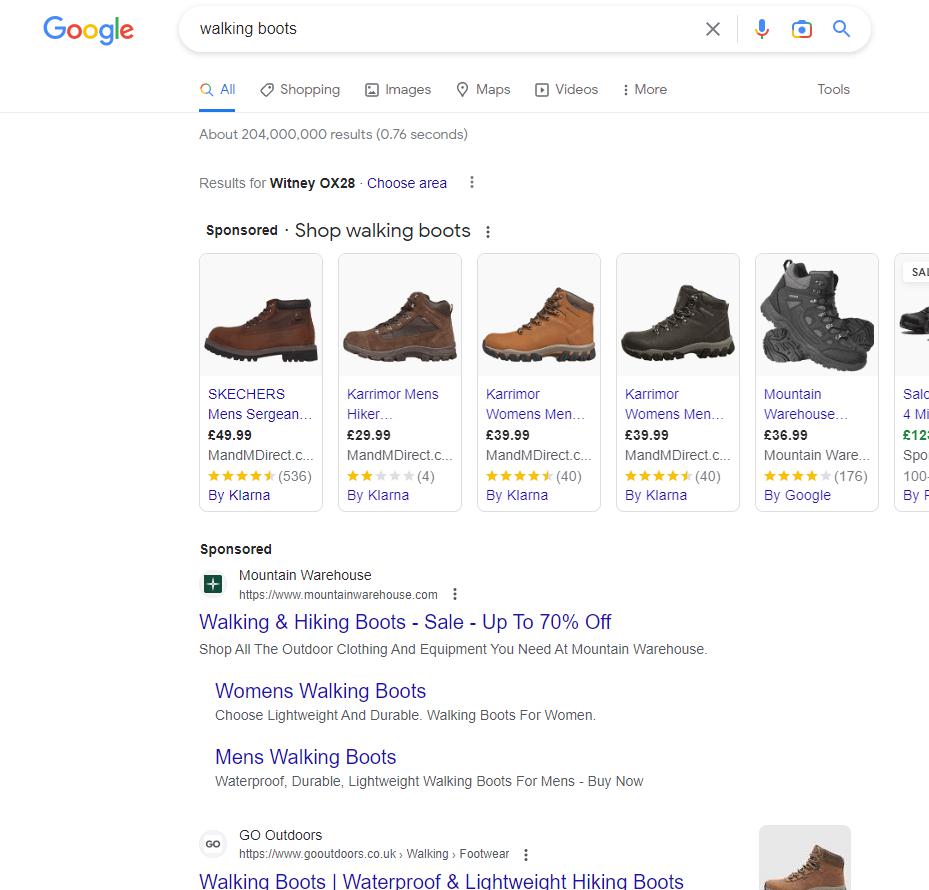What Are Google Ads?

If you run your own business, you will know how important it is to get your name out there and drive as much traffic to your website as possible. And what better place to position yourself than on the first page of the most popular website in the world?
What is Google Ads?
Unless you have been living under a large rock for the last 24 years, you will no doubt be familiar with Google. In fact, the popularity of the search engine means that the term “Google it” has become a commonly used phrase to say “go find out”!
Google Ads is the name for Google’s range of advertising capabilities. These services are designed to help business owners connect with the billions of people who search using Google each day. 8.5 billion searches to be exact.
When a user searches a particular word or phrase, they get the results for their query displayed on a search engine results page (SERP). Some of those results will be high-ranking organic content which they will see because of their relevance to the search carried out. The "ad” or “sponsored" results that can appear above those organic results at the very top of the page will be paid advertisements targeting the search terms or phrases. It is worth bearing in mind that only 0.63% of people will click on to the second page of Google search results so having a position at the top of page 1 is a very good place to be.

How does Google Ads work?
Google Ads operates under a pay-per-click model. This quite literally means that you pay a set amount for each click-through to your website. Marketers target a specific keyword on Google and make bids on the keyword, competing with others who are targeting that same keyword.
You can bid using a range of bidding strategies; from “maximum bids”, where you specify the maximum amount you are happy to pay for a click on an ad, to automatically setting bids that are based on the ads likelihood to result in a click or conversion. You can also set a maximum daily budget for your ad which means you will never go over your set amount.
Google will then pair your bid amount with an assessment of your ad and give it a Quality Score. This is “an estimate of the quality of your ads, keywords and landing pages. Higher quality ads can lead to lower prices and better ad positions.” Your Quality Score will range from 1-10 (with 10 being the highest score). The higher your score, the better you will rank, the more clicks you will get and therefore the higher chance you have of receiving leads.
What makes a good ad?
- Think about what the searcher is looking for: What will they be typing into Google if they are looking for your service or product? Keep this in mind while you are writing your ad. Think about your choice of wording and how you as a searcher would type something into Google. That becomes your keyword. What information can you give in your headlines and descriptions that will lead to a click? Carry out keyword research to understand where there is traffic volume and relevance to your service or product. The Keyword Planning tool in Google Ads is really good for this.


Your headlines must be compelling and relevant to your keyword and to your service and must include some call-to-actions. Your descriptions need to be clear and concise with enough information to entice the user whilst keeping within the character limit.
- Keywords: It is imperative that you target these correctly. Let’s imagine for a moment that you are the person performing the search. You are looking for a pair of walking boots. What would you type into Google? If you just typed in “boots” you would be given a plethora of websites that have absolutely nothing to do with what you are looking for. So you need to make sure that you are targeting the correct, relevant keywords which will lead to the clicks and conversions. These may include “walking boots”, “boots for walking”, “mens walking boots”, “womens walking boots”, etc.

- Use more targeted keyword match types: It is a common misconception that Google Ads is expensive. The truth is it is as expensive as you want to make it. With broader match types, your ads will be shown to a much larger audience. This may sound appealing but a lot of that audience will be irrelevant as you will be targeting and spending money on people who aren’t really interested in what you are selling. If we go back to the walking boots example, by using broad match keywords, you may well get people searching for a range of varying boot types because the match-type allows Google to interpret intent, and this can often be a little off-piste! By choosing phrase or exact-match keywords, you will be targeting a slightly smaller but more relevant group of people who are more likely to be looking for what you are offering. By no means are we saying you shouldn’t ever use broad-match keywords as they certainly have their place, especially as Google becomes more adept at interpreting intent, but careful consideration should be taken when choosing your match types.
- Landing pages: Imagine you’re the searcher again. You’ve searched for walking boots and an ad has caught your eye. You’ve clicked on the ad and the landing page takes you to a page for coats. Can you be bothered to navigate around the site to look for walking boots or will you go back to your Google search and click on the next relevant result? The marketer must make sure that the landing page they choose for the ad is relevant and gives the user exactly what they are expecting to find to lead to a purchase or enquiry. People want an easy, seamless process.
What are ad extensions?
Think of ad extensions as extra little bits of information that will help drive traffic to your website. There are ten different ad extensions but the most important ones are;
- Image extensions: The human brain is drawn to images. Having images on your ads is a very visual way to draw attention to your website

- Sitelinks: These appear underneath your main ad and provide extra information about your business, with clickable elements to alternative pages - decided by you. Google will show up to four, so always associate that as a minimum in order to take up as much real estate on the search engine page as possible

- Structured snippets: These highlight specific aspects of your products or services.

Top tips for optimising your ads
Creating a Google Ad is not a one-time thing. It needs regular optimising to ensure that it improves as you learn and that you are targeting the right audience.
- Time-sensitive ads: Some ads won't ever lose relevance. However, if you have an ad about an event or a limited sale, you will need to optimise accordingly to ensure that it is up to date. You can set campaign end dates which can help here
- Recommendations: Google will offer recommendations to help your ads perform better. It is always better to go through these manually and assess whether or not each one will benefit your ads or whether you can dismiss them
- Ad performance: Ideally, all of your responsive search ads should be rated at least good; ideally excellent. To improve them, you may need to change some headlines to match the keywords. Follow what Google suggests to reach the best possible performance level
- Add negative keywords: When you look through your search terms, you will probably find a lot that are not at all relevant to your service. By adding them as negative keywords,your ad will no longer appear for the irrelevant searches
- Learn from what people are searching for: Use the search term report in Google Ads, and use the search data from Google Search Console to understand your audience and what they’re looking for. Create ads that target all of those keyword topic areas
- Use a reputable PPC Agency: For further information on how we can help you, please contact us today.
Have a Google Ad Grant? The same rules DO NOT apply. There are many elements of compliance that are not relevant to a ‘paid’ Google Ads account. Beyond Your Brand are experts in managing Google Ad Grant and GrantsPro accounts.
-
SEO for Plumbers: Top Tips to Beat Your Competitors Online
-
How to Get More Google Reviews for Your Business in 2026
-
What Is Google AI Mode, and What Does It Mean for SEO?
-
Performance Max for Google Ad Grants
-
SEO for Therapist Practices: Strategies to Attract Your Ideal Clients
-
SEO for Travel Agencies: 7 Top Tips to Increase Bookings
-
SEO for Small Businesses: 9 Top Tips to Capture & Convert the Right Customers
-
PPC For Small Businesses: Tips and Techniques to Improve ROI